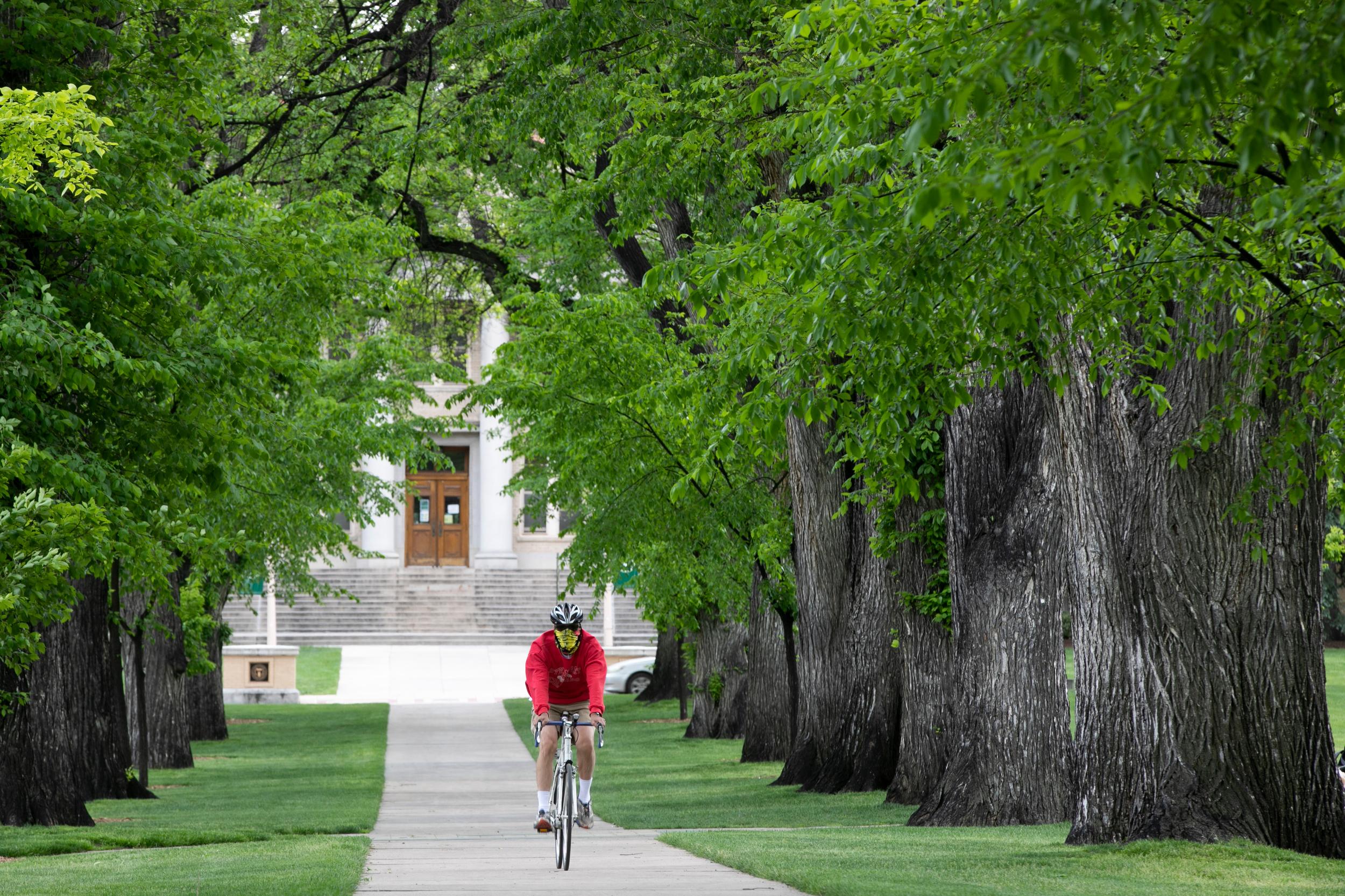
Gov. Jared Polis warned Tuesday that the state’s coronavirus numbers were starting to trend upward, driven in part by cases among college students.
“The worry is that the college transmissions lead to community transitions,” Polis said at a press conference.
He urged students specifically, and Coloradans in general, to recommit to what public health leaders point to as proven precautions: social distancing, wearing a mask, avoiding large gatherings, washing hands.
“We all are tired of the virus, but the virus is not tired of us,” he said. “It's still here and the minute we give it the lifestyle that allows it to expand exponentially it would. So we just have to continue to be smart, be cautious, and really go about our lives in a careful way.”
University of Colorado Boulder Chancellor Philip P. DiStefano sent out “an urgent request” on Tuesday morning to students, faculty and staff about the recent spike in COVID-19 cases.
“We need to stop the recent rise in positive COVID-19 cases immediately,” he wrote.
DiStefano urged wearing face coverings, avoiding gatherings of more than 10 people, practicing physical distancing and staying home when experiencing any COVID-19 symptoms.
The number of positive cases at the school has shot to 205 positive diagnostic tests documented during the third week of school, according to the chancellor’s update. That’s up from 90 the second week and 13 the first week.
Of 308 confirmed positive cases to date, 71 percent are among those living off-campus, with 29 percent among on-campus residents.
DiStefano said the university is working with the city, county and state to identify more interventions to “stop the surge.” He said current campus operations continue, but warned “compliance must improve immediately,” following public health guidance.
“We believe we can do it. If we do not, the CU community may become subject to further county and state public health directives,” DiStefano said, without specifying what those might be.
Dr. Rachel Herlihy, the state epidemiologist, said the rate at which the virus was spreading statewide, known as the effective reproductive number, has increased, although the percent of positive tests remains relatively stable.
In recent weeks the state’s hospitalizations had gone from declining to flat “with a slight upward trend,” she said. “This indicates the potential that we could be entering into a growth phase of cases once again.”
She predicted Colorado could see increasing transmissions in coming weeks.
Herlihy pointed to another worrying signal: the level of social distancing is down as well.
“So right now we're estimating about 65 percent. Several weeks ago, we were really much more in the 75 percent, 80 percent range,” she said. “We know that social distancing has been drifting down. If we were to continue to drift down, we could potentially see some additional stress on our healthcare system.”
She said the state’s data showed outbreaks among 18 to 22-year-olds, with six outbreaks reported to the state in the last week based at colleges or universities. Health officials expect that number to double probably by the end of this week.
Herlihy also said the health department has documented outbreaks at grade schools, but in smaller numbers than in university settings.
“We are seeing stable numbers among those school-age children,” she said. “But certainly the trend is indicating to us very substantial increases among our college students.”
The Polis administration’s response has been built around keeping the state’s hospital system from becoming overwhelmed by COVID-19 cases.
The governor noted the state’s pandemic death toll is now more than 1900 people.
“These are concerning trends,” but “not terribly surprising,” he said, given the Labor Day holiday weekend and colleges resuming.
He said residents needed to stick with proven prevention methods.
“That's our toolbox that we have," Polis said. "We know what works Coloradans have been doing well in those areas. And I want to encourage Colorado to continue.”








